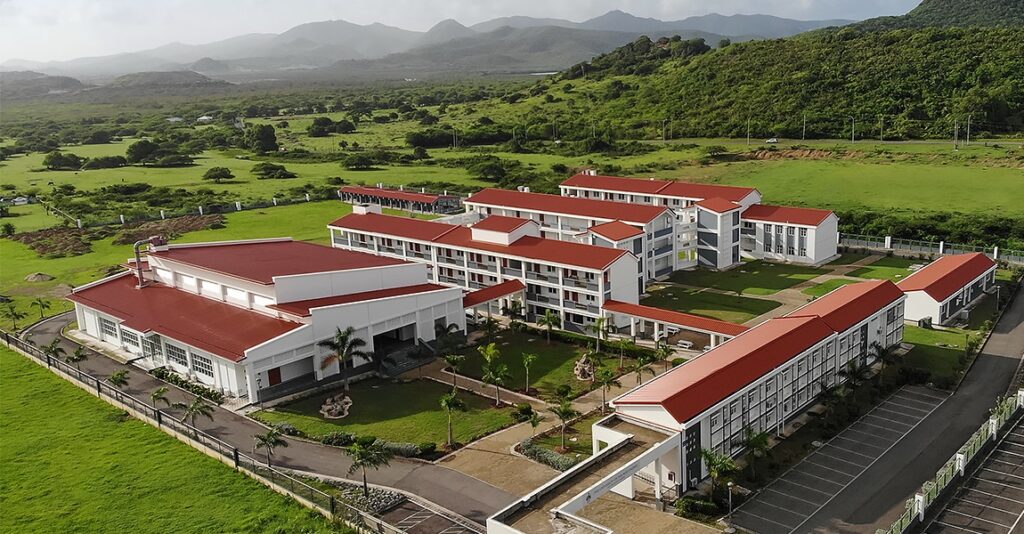In the stunning landscapes of the Eastern Caribbean, enticing property listings are taking a new turn – they’re not just selling homes, they're also offering passports. The rise in US political and social unrest has led to a marked spike in demand for citizenship by investment (CBI) programs, as wealthy individuals look for safer havens. Nations such as Antigua and Barbuda, Dominica, Grenada, St Kitts and Nevis, and St Lucia are now offering passports alongside real estate purchases, with prices starting at $200,000 (£145,000).
Buying property grants owners the benefit of visa-free travel to over 150 nations, including the UK and Schengen Area. The allure of tax exemptions, such as those on capital gains and inheritance, amplifies the appeal for high-net-worth individuals who can maintain their original citizenship.
"In Antigua, the demand for citizenship has surged, with approximately 70% of current buyers seeking this status," reveals Nadia Dyson, a local estate agent. She notes a shift in the market, stating, “Last year, we had lifestyle buyers – now, everyone is asking for citizenship.” While Antigua’s CBI program does not require residency, many buyers are considering relocating for good, with some already making the move.
US citizens now make up a significant portion of CBI applications in the Caribbean, a trend that investment migration experts attribute to a variety of domestic concerns. Apart from the US, notable applicant nations include Ukraine, Turkey, Nigeria, and China. Over the last year, applications for Caribbean CBI programs rose by 12%, a trend attributed to concerns about everything from gun violence to political division as highlighted by Henley & Partners, a migration consultancy.
“Many view obtaining a second passport as insurance against uncertain times,” explains Dominic Volek from Henley & Partners, noting that travelers may prefer a Caribbean passport for its perceived political neutrality. The Covid pandemic significantly contributed to this newfound interest, as travel restrictions prompted affluent individuals to seek alternatives to the US.
However, the popularity of CBI schemes is not without criticism. The initial proposal for passport sales in Antigua sparked protests over fears of commodifying citizenship. Critics argue that selling citizenship could undermine national identity, while some leaders in Caribbean nations without such programs have expressed their disapproval. There are also ongoing concerns regarding security and the potential misuse of these schemes for illicit activities.
European authorities are currently scrutinizing these programs, contemplating repercussions that could affect the travel benefits currently afforded to CBI nationals. Regional leaders, however, defend their programs; Dominica’s Prime Minister underscores that their CBI process is robust, claiming it has generated over $1 billion since its launch, funding essential infrastructure.
As these Caribbean nations grapple with international pressure, they are enacting reforms, such as enhanced applicant scrutiny and the establishment of a regional regulatory body aimed at ensuring compliance. The revenue generated from CBI now plays a significant role in local economies, contributing 10-30% to their GDP. While public opinion varies, many within countries like St Kitts express strong support for CBI, recognizing its economic benefits.
Buying property grants owners the benefit of visa-free travel to over 150 nations, including the UK and Schengen Area. The allure of tax exemptions, such as those on capital gains and inheritance, amplifies the appeal for high-net-worth individuals who can maintain their original citizenship.
"In Antigua, the demand for citizenship has surged, with approximately 70% of current buyers seeking this status," reveals Nadia Dyson, a local estate agent. She notes a shift in the market, stating, “Last year, we had lifestyle buyers – now, everyone is asking for citizenship.” While Antigua’s CBI program does not require residency, many buyers are considering relocating for good, with some already making the move.
US citizens now make up a significant portion of CBI applications in the Caribbean, a trend that investment migration experts attribute to a variety of domestic concerns. Apart from the US, notable applicant nations include Ukraine, Turkey, Nigeria, and China. Over the last year, applications for Caribbean CBI programs rose by 12%, a trend attributed to concerns about everything from gun violence to political division as highlighted by Henley & Partners, a migration consultancy.
“Many view obtaining a second passport as insurance against uncertain times,” explains Dominic Volek from Henley & Partners, noting that travelers may prefer a Caribbean passport for its perceived political neutrality. The Covid pandemic significantly contributed to this newfound interest, as travel restrictions prompted affluent individuals to seek alternatives to the US.
However, the popularity of CBI schemes is not without criticism. The initial proposal for passport sales in Antigua sparked protests over fears of commodifying citizenship. Critics argue that selling citizenship could undermine national identity, while some leaders in Caribbean nations without such programs have expressed their disapproval. There are also ongoing concerns regarding security and the potential misuse of these schemes for illicit activities.
European authorities are currently scrutinizing these programs, contemplating repercussions that could affect the travel benefits currently afforded to CBI nationals. Regional leaders, however, defend their programs; Dominica’s Prime Minister underscores that their CBI process is robust, claiming it has generated over $1 billion since its launch, funding essential infrastructure.
As these Caribbean nations grapple with international pressure, they are enacting reforms, such as enhanced applicant scrutiny and the establishment of a regional regulatory body aimed at ensuring compliance. The revenue generated from CBI now plays a significant role in local economies, contributing 10-30% to their GDP. While public opinion varies, many within countries like St Kitts express strong support for CBI, recognizing its economic benefits.




















